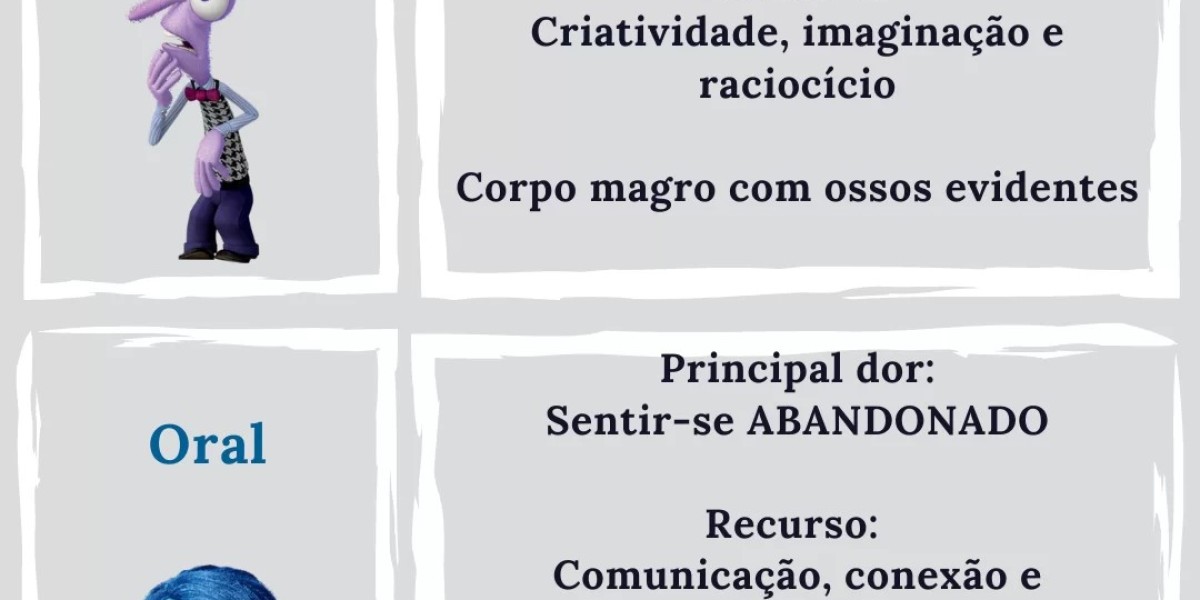What is the masochist character structure?
Summary of the character construction based on Anne Hodiamont, bio-energetic therapist and certified in "subtle energies" since 2016. The masochist must experiment and consciously take responsibility for his rage as well as his pleasure. This helps him/her to get out of his/her depressed and saboteur lifestyle He/she wants to assert him/herself and regain his/her independence. For that, he/she must wash away his/her humiliation and release his/her negativity, his/her aggressiveness, by expressing it actively, when he/she feels like it and as it suits him/her.
Want to Learn More?
While Reich emphasised character as an obstacle, he neither created nor emphasised a thorough typology of character. Reich believed it was essential to 'nook' the armor in a client, section by segment. As growing infants, we first start to categorical negativity around the age of two. Our way of forging an ego is through resisting that which our dad and mom, or other care-givers, wish us to do. Although children at this time can appear to be intentionally annoying and drama-creating, they are also very delicate. To others, endurers are usually type, nice, pleasing, servile, initially self-sacrificing and ingratiating. They often volunteer to help and infrequently assert their wishes immediately.
Wilhelm Reich Psychotherapy – The Endurer (Masochist)
The positive model of this character is the conscientious, internal directed obsessive. Freud additionally described the erotic character as both loving and dependent. And the narcissistic character because the pure chief, aggressive and unbiased because of not internalizing a powerful super-ego. Wilhelm Reich famous this character had a condition generally known as the "Masochistic morass". In this dynamic, anyone who tries to assist this individual shall be defeated and annoyed by the Endurer’s helpless immobility, which in reality is a passive-aggressive stance in the direction of others and in the direction of life itself.
Egoic and Pre-egoic Structures
Masochistic people have been described as "nice guys" and show pathological levels of what R.F. Bornstein coined "interpersonal dependency" (i.e. "damaging overdependence"), including indeciveness, passivity, and an extreme want for approval. Often a therapist or significant different or caregiver may deny the presence of the hostility underlying overt masochism because they are threatened by their very own sadism (Asch, 1988). Take the Character Structure Quiz to discover your character structure/s.
Sexual Masochism and Consensual Power Exchange
They may tend to really feel a kind of depression due to the overload of obligations and issues weighing on them. This is completely different from the despair of the oral that comes from lack and loneliness. Alexander Lowen came to believe that resistance to vary ultimately resided not just within the physique and not simply in beliefs, but truly in character itself, intangible as it may be. That is, physique work alone, or psychological work alone, or even perhaps each done in parallel, may not likely unseat the limiting results of character.
The Endurer (Masochist)
While eyes can inform lots about a person, they don’t inform the entire story, particularly with psychopathy. Law explains that psychopaths often battle to really feel and show a full range of emotions. Their eyes won't reflect genuine heat, sadness, or concern. But they can additionally be extremely good at faking feelings, making them seem empathetic when they’re not.
A psychopath might use intense eye contact to intimidate or control a scenario. Imagine someone holding your gaze uncomfortably lengthy, making an attempt to dominate the conversation. People with psychopath traits might have an elevated danger for violence and criminal behavior, however not all psychopaths are violent criminals. Treatments such as CBT and psychotropic medications may assist reduce certain psychopathic behaviors and traits.
What Causes Psychopathy?
Instead, they discuss with attributes like blinking slowly or having a cold, impassive stare. For example, in American Psycho, Christian Bale’s character, Patrick Bateman, usually has a chilling, Analise De Linguagem Corporal Metaforando empty gaze that makes him appear all of the extra menacing. If identifying a psychopath was as straightforward as looking in their eyes, the world can be a a lot less complicated place. Unfortunately, it’s not that straightforward, says Claire Law, MBACP, a relational psychotherapist. Toketemu has been multimedia storyteller for the last 4 years. According to Cleckley, psychopaths show unreliability, whereas the PCL mentions "irresponsibility," and the PPI describes psychopaths as showing "blame externalization," i.e. they blame others for things which may be actually their fault.
Is a key element of emotional intelligence and performs a fundamental role in anger management. It includes being attuned to our emotions, ideas, and physical sensations when anger arises. By cultivating self-awareness, we will establish the early signs of anger, similar to elevated heart price or tense muscles, and intervene earlier than it escalates. Anger Management remedy in London usually incorporates methods to reinforce self-awareness, permitting people to recognize triggers and implement efficient coping mechanisms. Developing self-awareness is an ongoing course of that can considerably contribute to managing anger and promoting emotional well-being. Intelligence Anger is a powerful emotion that may have a major influence on our lives.
Book contents
It is easy for us to get misplaced in our very primary emotions and motives, or become personally distressed by the problems of others. At any moment, someone’s aggravating habits or our personal unhealthy luck can set us off on an emotional spiral that threatens to derail our complete day. Here’s how we will face our triggers with much less reactivity in order that we are ready to get on with our lives. Specifically, each preexisting anger when facing a decision and anger triggered by the decision constrict openness to perspective-taking.
Supporting information
It normally happens amidst unfavorable feelings (anger, unhappiness, frustration and irritation). It shall be argued below that increased anger propensity will increase the danger for reactive aggression. In work on human aggression, a basic distinction has been drawn between instrumental (aka proactive/planned) and reactive (aka affective/defensive/impulsive) aggression [4]. The aggressor anticipates that the act could have a optimistic end result (increased sources or social status or gratification of a perceived need).








